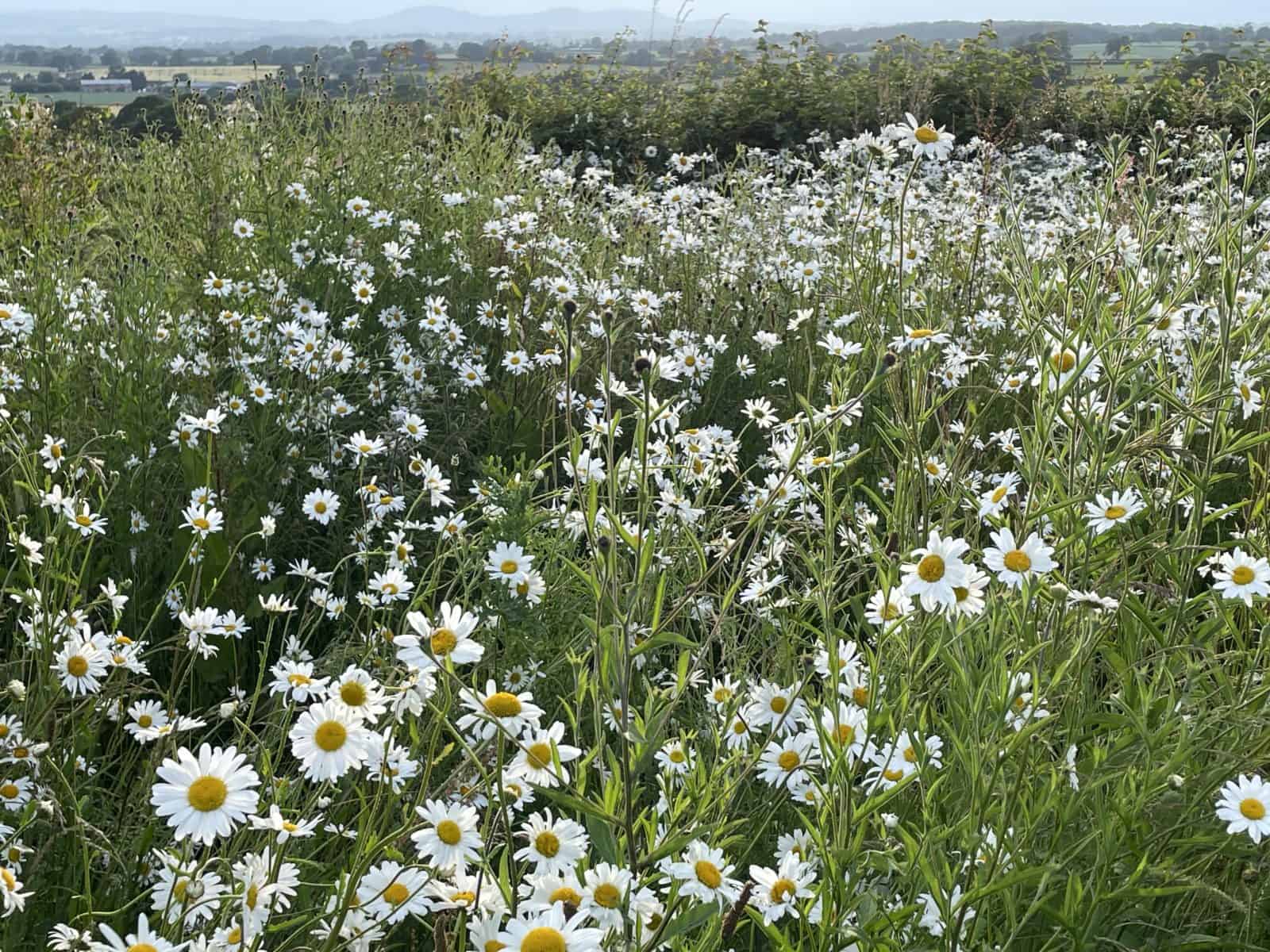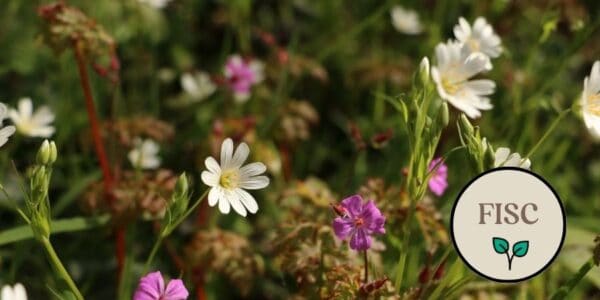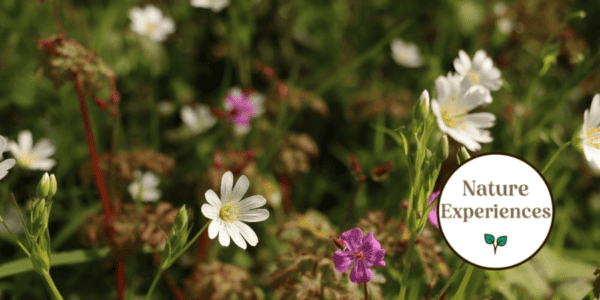This beginner course will provide you with an introduction to British wildflower families, covering a mixture of the more common and some unusual species, with an opportunity to identify these in the field.
The course will include:
- An introduction to British wildflower families, including common and more unusual species
- Field visit to observe these species in their habitat
- How to identify species covered
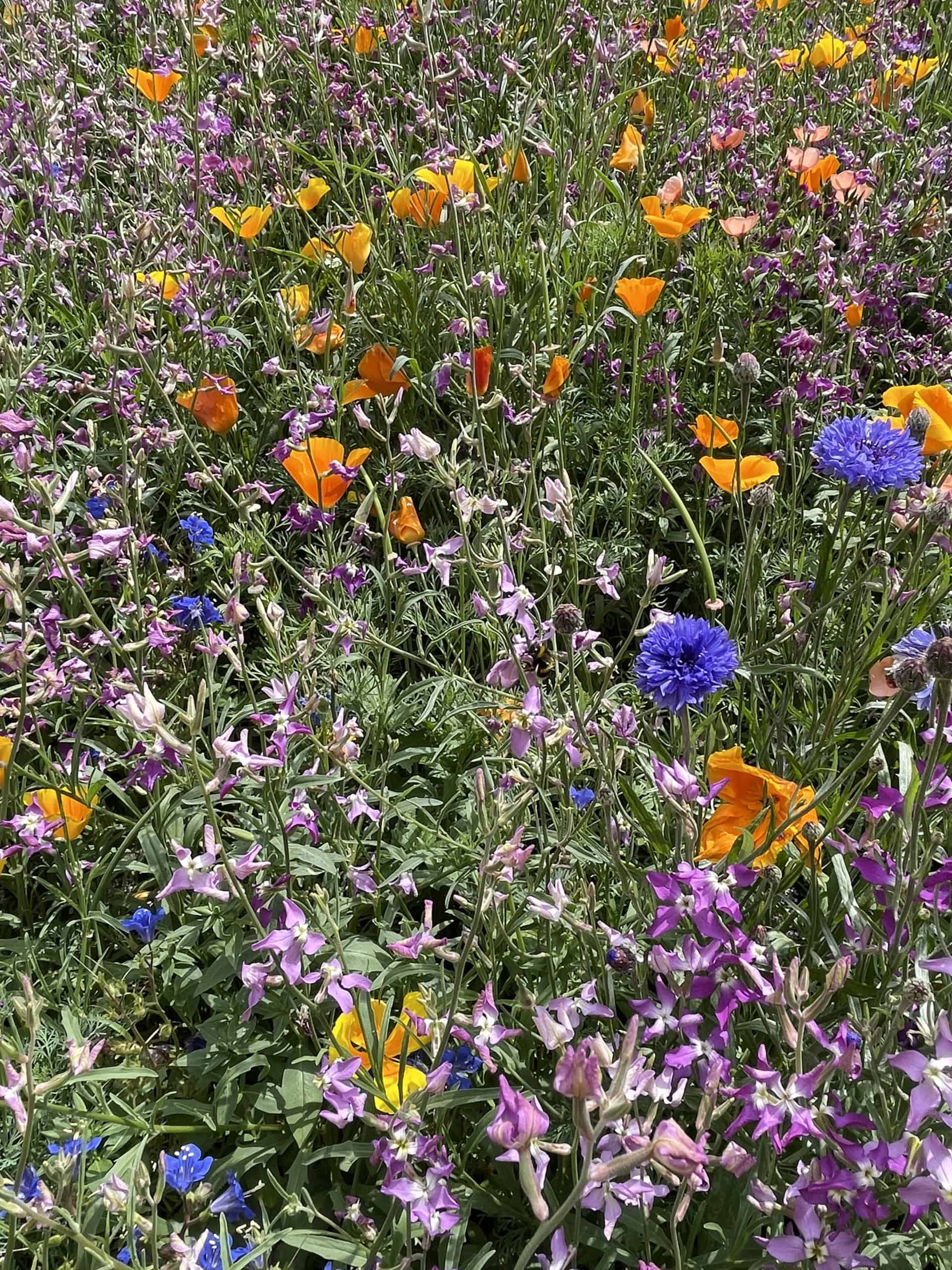
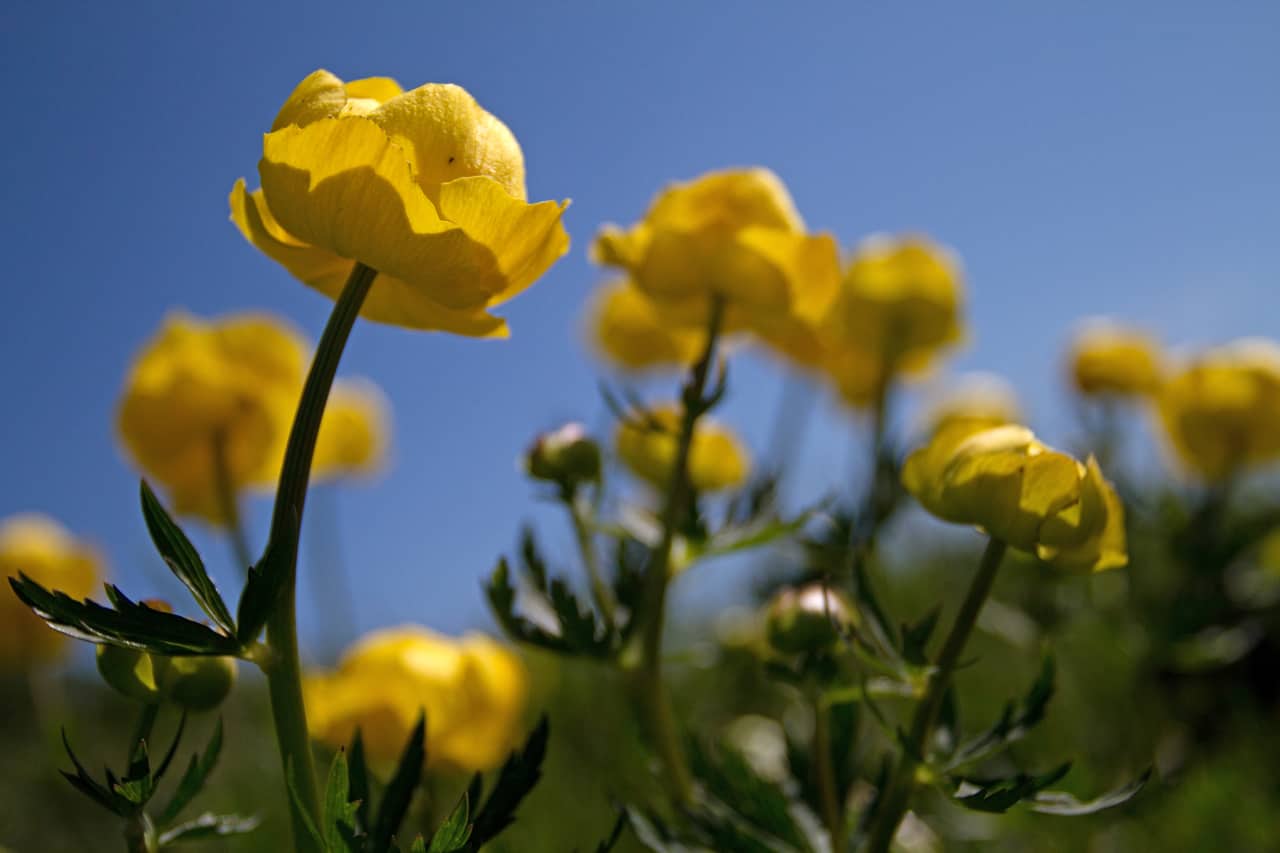
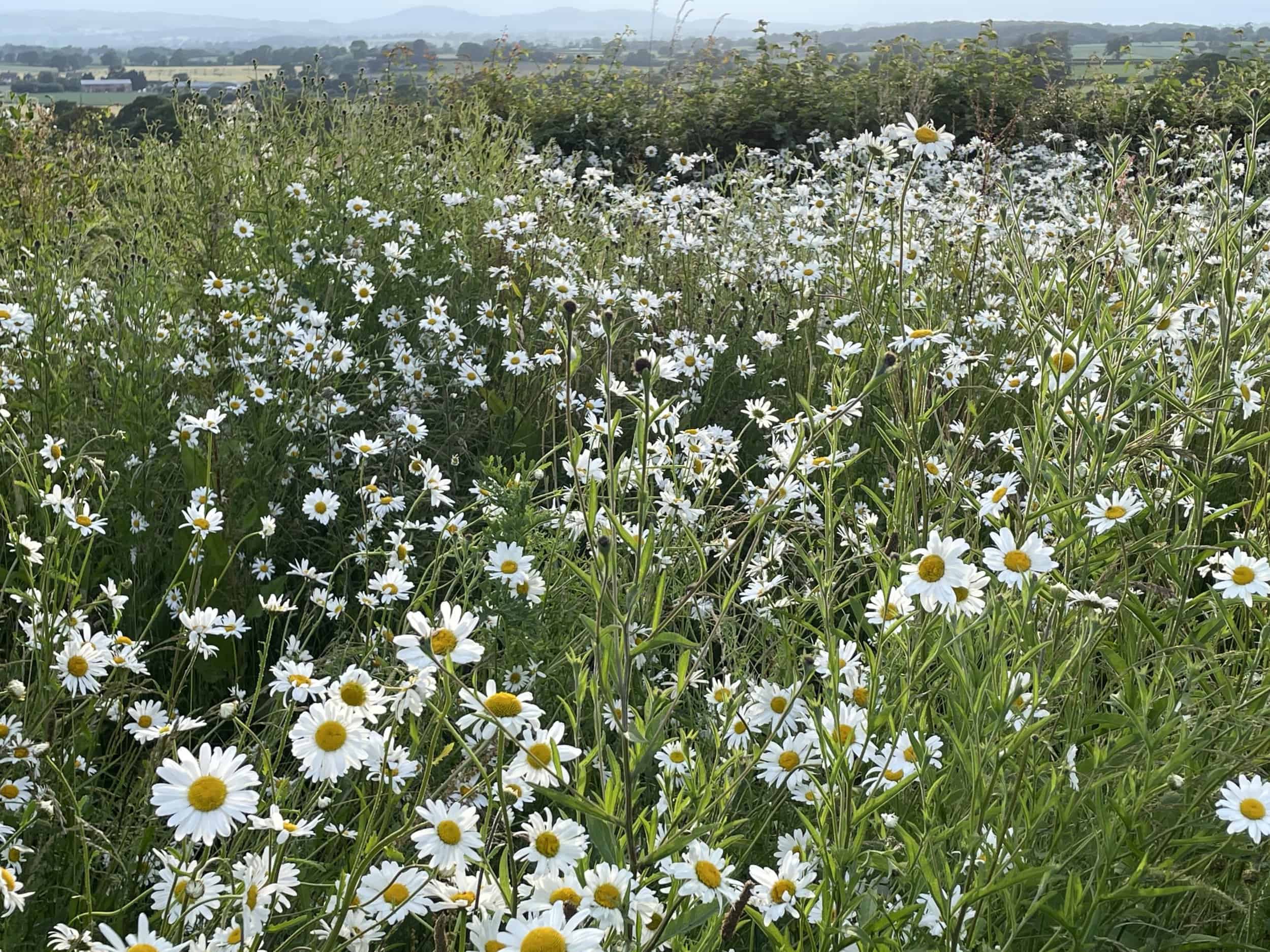
Read More
This course will enable you to build skills in identifying wildflower families in the field, in the presence of an expert tutor. You will go out into the field and observe the wide variety that can be found.
By the end of the course, you will be able to:
- Display knowledge of British wildflower families
- Identify flowers of 10 British wildflower families and their more common representative species
Who Should Attend? – Nature enthusiasts, students, rangers, early career consultants and ecologists.
Knowledge Level – Beginner. Level descriptors can be found on the following web-page: Framework and Course Level Descriptors
Prior Knowledge – basic knowledge of wildflower families would be beneficial, but not essential.
PLEASE NOTE: There is no accommodation or meal facilities provided with this course. Refreshements (tea and coffee) will be available. If we are unable to reach viable numbers for this course, we will inform you of the course cancellation 4-5 weeks prior to the course run. We would recommend when purchasing accommodation and/or travel you should take out your own insurance.
Bookings will close if course capacity is reached.
Please email [email protected] if you have any questions.
About the Tutor
This course is run by multiple tutors – which one will be hosting you will depend on the location of the course you book.
Henry Miller
I am a botanist working at Kew gardens on projects relating to conservation of tropical plants in Uganda as well as producing extinction risk assessments for Ethiopian species. Outside of work I am involved in the Botanical Society of Britain and Ireland and the London Natural History Society, I volunteer with these organisations to record and identify a wide range of plants.
Dr Jackie Symmons
Dr Jackie Symmons is an experienced freelance ecologist and conservation land management adviser from Mid Wales. She has an extensive background in delivering conservation field research and training from wild deer impacts to marine and terrestrial environment habitat surveys. She is also currently working in the area of natural resource resilience and climate change mitigation.
Sharon Brown
Sharon Brown is a botanist–geographer currently working as an independent ecologist with habitat assessment and management as a main area of expertise. Over time she has also worked for the Nature Conservancy Council, Scottish Rangering, Wildlife Trusts and latterly as an associate tutor for the Field Studies Council. As a naturalist she has a fascination for wild places, as well as the wild in more urban settings and an enthusiasm for passing this to others through practical application.
Julie Riley
Julie Riley MCIEEM is a Consultant Ecologist with 17 years’ experience of working in the environmental sector, specialising in botany and habitat surveying. Julie has extensive experience of working with and training on JNCC Phase 1 habitat surveying, UKHab surveying and Biodiversity Net Gain work. Julie holds a FISC Level 4 botanical certification and enjoys helping professionals, volunteers and members of the public to improve their plant identification skills.
Dr Amanda Tuke
Dr Amanda Tuke is a consultant botanist and university lecturer with
a PhD in plant ecology. She is passionate about teaching botany and
sharing her fascination with plants and is the vice-chair of the Skills &
Training Committee of the Botanical Society of Britain & Ireland.
Ian Powell
Ian worked as an Ecology tutor with the Field Studies Council back in the last century and has led many natural history groups within the UK and in South America. He has since taught undergraduate and masters courses in conservation ecology at Edge Hill University for many years.
Diego Sánchez-Ganfornina
Diego Sánchez-Ganfornina is a botanist and educator with interests in bryology and plant ecology, living and working in Edinburgh. With a passion for nature since an early age, Diego’s knowledge and experience has developed in different countries and habitats. He has participated in a variety of research and education projects over the years, and is now informing conservation priorities in arid rangelands in Saudi Arabia; researching several Australasian moss taxa, and developing + delivering educational activities at the Royal Botanic Garden Edinburgh. All projects Diego participates in have a common theme: that of having an immediate impact on the climate crisis, be it through conservation, ecological restoration, education or the raising of public awareness.
Morag Boyd
Morag Boyd is a countryside professional with 30 years experience working in a range of countryside and conservation professions. In a varied career, she has worked in a variety of roles including countryside ranger in various locations, lecturer in countryside management for Elmwood College in Fife, conservation shepherd for the Scottish Wildlife Trust and now she combines a contract with Scottish Badgers, recruiting and training volunteers for the national Get Sett Scottish Badger Survey with freelance work training teachers to take learning outdoors for Learning Through Landscapes. She also runs her own outdoor nature education business, working with schools and community groups to get children outdoors and learning about nature.
Morag has a broad knowledge of many different aspects of ecology and conservation, with particular interests in badgers, of course, trees and woodland management and botany.
Emma Gunn
Emma Gunn is a foraging tutor at River Cottage and the author of the foraging series Never Mind the Burdocks. She studied and taught Garden Design and has over 25 years of experience in horticulture including 22 years at the Eden Project. Emma’s passion for plants started at a very young age and has never left her – from edible species, medicinal, floral and garden design, no stone is left unturned.
Emma enjoys sharing her knowledge, giving people the confidence to understand the natural world better, create better connections with our environment and to forage sustainably.
Example Timetable
Timings of this course vary between locations, so please carefully check the times on the course run (the section where you can add the course to your basket towards the bottom of this page). There will be a lunch break during the day, the length of the break will vary depending on course location. Lunch is not included so please bring your own food. Refreshments (tea and coffee) will be provided.
What's Included
The course has been carefully created by expert tutors and educators to help you continue to build and develop your knowledge and apply it within the field surrounded by like-minded individuals.
The course includes:
- Classroom learning covering the theory of the species
- Field excursions to apply new knowledge
- Expert tuition for which the Field Studies Council is renowned
- Clear objectives and progression
- Refreshments (tea and coffee)
You can rest assured that the absolute best content from an expert in environmental education will be provided. In choosing this course, you will be joining thousands of people who learn with us each year.
Bursaries and Subsidies
Student Discount
This course is eligible for a student discount. If you are a current student, please use discount code BioStudent20 at checkout for 20% off all Biodiversity courses.
Natural History Bursaries
There are a number of natural history bursaries available to help with the cost of your course. To find out if you and your chosen course are eligible, read more here.
The Wild Flower Society Bursary
The Wild Flower Society (WFS) has generously donated a number of bursaries to encourage a wider understanding of wildflower identification among younger people. If you are aged 18 to 30, you may wish to apply. You can find out more here.
Before You Attend
What to Bring:
- Notebook and pencil
- Lunch and refreshments
- Sensible footwear and clothing for being outdoors
- Small bag to carry personal items
- Your own reference book(s) (if you have them)
Recommended Literature
When you book this course, you will receive a discount code for the Field Studies Council recommended guides below.
- Field Studies Council 'Woodland Plants' fold-out guide
- Field Studies Council Grassland plants 2 guide
There will be a member of staff with first aid training and access to a first aid kit on site. If you have special medical or access requirements, please let us know as soon as possible so we can plan the course.
Opportunities to attend this course
-
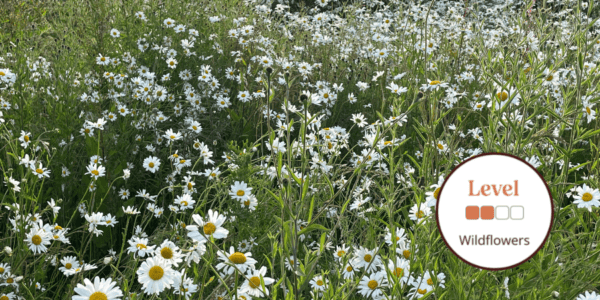
Sat 18, May 2024 10:00 - 17:00
The centre is unable to offer accommodation with this course, please book local accommodation if you require overnight stays and ensure you take out the appropriate insurance.
-

Sat 18, May 2024 09:30 - 16:30
The Centre is unable to offer accommodation with this course, please book local accommodation if you require overnight stays and ensure you take out the appropriate insurance. Please Note: Course timings are 9:30 to 16:30 for this course.
-

Sat 08, June 2024 10:00 - 17:00
The Centre is unable to offer accommodation with this course, please book local accommodation if you require overnight stays and ensure you take out the appropriate insurance.
-

Tue 11, June 2024 10:00 - 17:00
The centre is unable to offer accommodation with this course, please book local accommodation if you require overnight stays and ensure you take out the appropriate insurance. Please meet at the Bute Park visitor centre, there are instructions of how to get there on their website. There is no car park at Bute Park. There is a concert on at the Principality Stadium, so public transport, roads, and car parks are likely to be busy. Bute Park have recommended using the North Road Car Park.
-

Sat 22, June 2024 10:00 - 17:00
The Centre is unable to offer accommodation with this course, please book local accommodation if you require overnight stays and ensure you take out the appropriate insurance.
-

Fri 28, June 2024 10:00 - 17:00
The centre is unable to offer accommodation with this course, please book local accommodation if you require overnight stays and ensure you take out the appropriate insurance.
-

Sat 29, June 2024 10:00 - 17:00
The Centre is unable to offer accommodation with this course, please book local accommodation if you require overnight stays and ensure you take out the appropriate insurance.
-

Sun 07, July 2024 10:00 - 16:30
The Centre is unable to offer accommodation with this course, please book local accommodation if you require overnight stays and ensure you take out the appropriate insurance. Further information on The Falkland Estate can be found here. Please Note: Course timings are 10:00am to 16:30pm for this course.
-

Sat 20, July 2024 10:00 - 17:00
This course will be held in the Room With a View at the Growing Point Nursery at the Eden Project. Growing Point is located in Eden's Outer Estate. From the main North gate entrance, follow the main road, crossing over the first set of speed-bumps/gates and Growing Point is the first turning on your left. If driving in from the East Gate, follow the directions to the YHA, continue up the hill and take the next turn on your right. The Venue is unable to offer accommodation with this course, please book local accommodation if you require overnight stays and ensure you take out the appropriate insurance.
No current dates for this course? Click here to view all the upcoming Natural History courses.
Progress Your Learning
This is a training course from the Field Studies Council, delivered by expert tutors with an approachable learning style. After attending this course, you may like to progress your learning with further relevant courses or branch out into other areas of natural history. The Field Studies Council offers both online and in-person courses, so you can choose the learning style that suits you best.
The course gives you the opportunity to immerse yourself in a new subject and acquire novel skills. Our online portal gives you time to study at your own pace and fit the lessons around your own schedule.
If you have any questions about our courses please check our Frequently Asked Questions or email [email protected].
Group Bookings Made Easy
If you have a group of 10 or more individuals wanting to complete one of our courses, our team are available to discuss your options – from discounts to private team courses. Click here to find out more!
You can rest assured that the absolute best content from an expert in environmental education will be at your fingertips. In choosing a Field Studies Council course, you will be joining thousands of people who learn with us each year.

